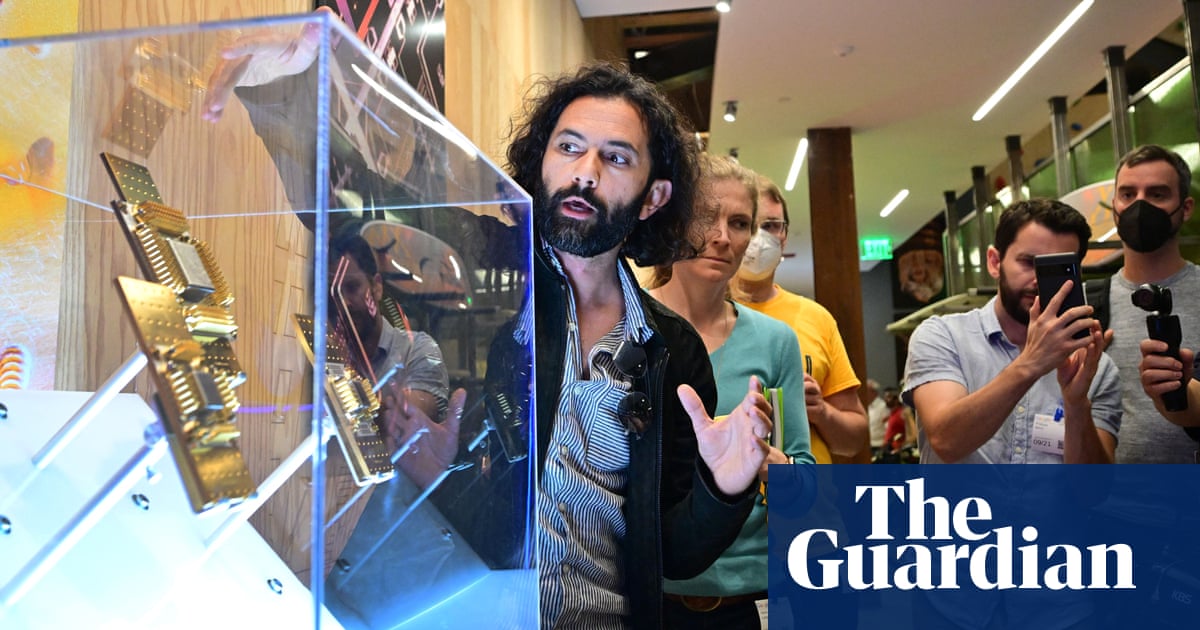It measures just 4cm squared but it possesses almost inconceivable speed.
Google has built a computing chip that takes just five minutes to complete tasks that would take 10,000,000,000,000,000,000,000,000 years for some of the world’s fastest conventional computers to complete.
That’s 10 septillion years, a number that far exceeds the age of our known universe and has the scientists behind the latest quantum computing breakthrough reaching for a distinctly non-technical term: “mindboggling”.
The new chip, called Willow and made in the California beach town of Santa Barbara, is about the dimensions of an After Eight mint, and could supercharge the creation of new drugs by greatly speeding up the experimental phase of development.
Reports of its performance follow a flurry of results since 2021 that suggest we are only about five years away from quantum computing becoming powerful enough to start transforming humankind’s capabilities to research and develop new materials from drugs to batteries, one independent UK expert said. Governments around the world are pouring tens of billions of dollars into research.
Significantly, Willow is claimed to be far less prone to error than previous versions and could swell the potential of the already fast-developing field of artificial intelligence.
Quantum computing – which harnesses the discovery that matter can exist in multiple states at once – is predicted to have the power to carry out far bigger calculations than previously possible and so hasten the creation of nuclear fusion reactors and accelerate the impact of artificial intelligence, notably in medical science. For example, it could allow MRI scans to be read in atom-level detail, unlocking new caches of data about human bodies and disease for AI to process, Google said.
But there are also fears that without guardrails, the technology has the power to crack even the most sophisticated encryption, undermining computer security.
Google Quantum AI is one of numerous groups wrestling with how to harness the computing power of quantum mechanics including Microsoft, Harvard University and Quantinuum, a firm with UK links. A key problem is reducing the fragility of quantum chips as even microscopic material defects, cosmic rays and ionising radiation tend to knock them off course.
“Quantum processors are peeling away at a double exponential rate and will continue to vastly outperform classical computers as we scale up,” said Hartmut Neven, the founder of the firm, who said that the latest test results, published on Monday in Nature magazine, “cracks a key challenge in quantum error correction that the field has pursued for almost 30 years”.
He said the far greater speed of the new chip than classical computers “lends credence to the notion that quantum computation occurs in many parallel universes, in line with the idea that we live in a multiverse”.
Simply put, if a quantum computer can be in many different states at once, it can get more done at the same time.
after newsletter promotion
Dr Peter Leek, research fellow at the University of Oxford’s Quantum Institute and founder of Oxford Quantum Circuits, said: “It’s definitely thought-provoking to put it that way. What it really does is show that quantum computing technology is rapidly moving forward. It really is working.”
He described the Google results as a “shining example” of improvements in error correction, but he cautioned that the very fast processing results related to calculations that were “not of much real-world use”.
“I’m very optimistic,” he said. “I think we’re going to see a real acceleration over the next five years and then we’ll be able to say, look, this machine has calculated an interesting thing that I can explain to someone, and how it could be used in the real world.”
Asked about the risks of high-powered quantum computers wrecking current systems of encryption, Charina Chou, the director and chief operating officer of Google Quantum AI, said: “Security experts have been working on this, and they’ve had ample time over the last many years to really figure out what the right standards should be, what post-quantum encryption should look like.”
She added: “We’re working with a number of both large companies, as well as academics and startups in this space, right of physics, of chemistry, material science that seems very, very ripe for collaboration.”

